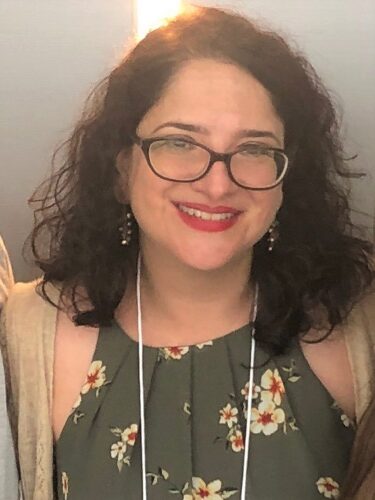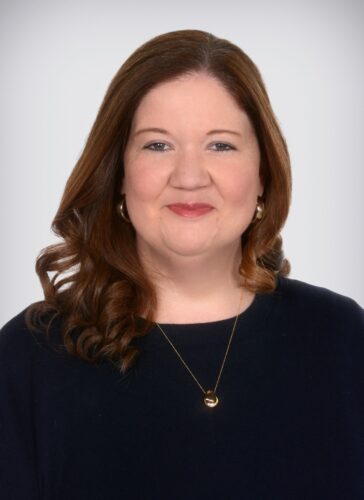
Society of Pediatric Psychology (SPP) webinars are free to members! Non-members can access webinars for the following cost:
| Non-Member Registrants (>1.5 CE Credits) | $50.00 |
| Non-Member Registrants (1 - 1.5 CE Credits) | $30.00 |
| Non-Member Student Registrants | $10.00 |
Webinars

Everyday Advocacy: Engaging Decision Makers in Support of Pediatric Psychology
Friday, May 16 | 1:00pm - 2:30pm ET
Presented by Kenneth Polishchuk, MA, MPP and Raegina Likewise, MA
Description:
Learn what every day advocacy looks like and how to make a persuasive case to all types of decision makers, at the federal, state, local, and institutional levels, to benefit your profession and the communities you serve. Clinicians, educators, researchers and students’ training and experience give them unique insights into key issues facing the nation, including your expertise in pediatric psychology. You can use those insights to inform decision makers as they work on solutions for these issues. However, many people do not know where to begin. This live training will explain what comprises advocacy and what some best practices for engaging are, how to engage in social media advocacy, and offer some examples of federal policies that you can advocate for, using these skills.
Presenter Bios:
Kenneth Polishchuk, MA, MPP, is the Deputy Chief for Education and Training Policy at the American Psychological Association where he leads APA’s education and training policy and advocacy portfolio. He has been with APA since September 2019. His issue areas of focus cover the full continuum of education, including early childhood, elementary and secondary, and higher education programs, as well as psychology training and workforce development programs. Since 2021, Kenneth has been named one of The Hill’s Top Lobbyists. He currently serves on the Board of Directors of the Committee for Education Funding and the Title IV-A Coalition. Prior to his work at APA, he spent more than 5 years on the government affairs team at the Council of Graduate Schools. He has an MA in American Politics, an MA in Public Policy, and a BA in Psychology.
Raegina Likewise, MA, serves as a Senior Manager of Congressional and Federal Relations at the American Psychological Association (APA). In this capacity, she focuses on psychology policy and programs for workforce development, education, congressional appropriations, and LGBTQ+ students and youth. Raegina earned her Master of Arts degree from The George Washington University and holds a bachelor's degree from Knox College.
Learning Objectives:
After the presentation, attendees will be able to:
1. Describe at least 3 actions one can undertake while engaging in advocacy.
2. Describe best practices for advocating through social media.
3. Highlight several examples of federal policies impacting pediatric psychology.
Learning Level:
Beginner to Intermediate.
Conflict of Interest:
Presenters reported no conflicts of interest.
Registration:
Webinar registration is free to all SPP members. Registration rates for non-members are listed below.
| Non-Member Registration | $30.00 |
| Non-Member Student Registration | $10.00 |
Registration for this webinar is a two-step process. Attendees will need to click on the link in their webinar email to finalize registration and receive the Zoom information.
Continuing Education:
Attendees will receive 1.5 CE credits for attending the entirety of this webinar.
The Society of Pediatric Psychology is approved by the American Psychological Association to sponsor continuing education for psychologists. The Society of Pediatric Psychology maintains responsibility for this program and its contents.
The Society of Pediatric Psychology (Division 54 of the American Psychological Association) is recognized by the New York State Education Department’s State Board for Psychology as an approved provider of continuing education for licensed psychologists #PSY-0279.
Register here! Registration is a two-step process. Attendees will need to click on the link in their webinar email to finalize registration and receive the Zoom information.


Expanding Professional Borders: Supporting Youth and Families in a Shifting Immigration Landscape
Friday, April 18 | 2:00pm - 3:30pm ET
Presented by Diana Formoso, PhD
Registration for this webinar is limited to members.
* This webinar will not be recorded and is for members only.
Description:
A population health approach (Olson et al., 2018; APA, 2022) and social determinants of health models (Castañeda et al., 2015) support the notion that psychologists can play a key role in promoting health and reducing health inequities for immigrant communities by working across multi-contextual systems of influence, facilitating community engagement and creating partnerships to advocate for systemic change. Psychologists working with migrant communities are facing a rapidly-shifting immigration landscape, and many are struggling with how to provide culturally-competent, ethical and timely support to migrant youth and families facing an uncertain future in the United States. This presentation will focus on identifying ways to support clients facing immediate immigration-related stressors; prepare for possible interactions with immigration officials in professional settings to increase clarity, protect privacy and enhance safety; identify avenues for multidisciplinary collaboration to support migrant youth and families in their interactions with healthcare, school and legal settings; and identify opportunities for advocacy.
Presenter Bio:
Diana Formoso, PhD is a Professor in the College of Psychology at Nova Southeastern University. She earned her PhD in Clinical Psychology at Arizona State University and completed her post-doctoral work at the University of Illinois at Chicago, specializing in children and families and community psychology. She has over 25 years’ experience in understanding risk and protective factors impacting low-income, ethnic minority and immigrant youth and families. She co-developed several interventions to strengthen youth coping skills, parenting, and family and community support for immigrant youth (Bridges serving Mexican American and Mexican immigrant middle schoolers in Phoenix, AZ; Newcomer Center parenting groups for recently immigrated parents of high schoolers in Chicago, IL; and Connections serving elementary students and parents from Latin-America, Haiti, and the English-speaking Caribbean in South Florida). Her most recent work is leading the Unaccompanied, But Not Alone project, where we use a community-based participatory research approach to learn more about the strengths and needs of unaccompanied immigrant minors in South Florida. This qualitative work has informed a strengths and needs assessment, our understanding of UIM resilience and family, community and policy protective factors, and facilitators and barriers to services for migrant youth and families. To support this work, Dr. Formoso has sought training in how psychologists can partner with multidisciplinary professionals to support migrant youth and families in their interactions with healthcare, schools, and legal settings. The team has volunteered at legal immigration screening clinics and developed a migrant youth resource guide for our local area. This work is intended to: (1) develop strengths-based, culturally-competent interventions for unaccompanied youth, their caregivers and the professionals who serve them; (2) train and support psychologists and psychology trainees in ways to interact with multiple systems to support migrant youth and families; and (3) inform community-based services and policy initiatives that can support family relationships and youth well-being. As a bicultural, bilingual psychologist and the proud child of immigrants, Dr. Formoso strives to bring the gift of education back to the communities that raised her.
Learning Objectives:
After the presentation, attendees will be able to:
- Describe three ways psychologists can provide timely support for clients facing immigration-related stressors.
- Describe how psychologists can prepare for possible interactions with immigration officials in their professional settings.
- Identify avenues for collaboration with multidisciplinary professionals to support clients in their interactions with healthcare, school and legal settings.
- Identify advocacy opportunities that align with their strengths, roles and expertise.
- Select two strategies for committed action that can provide a timely response to the shifting immigration landscape.
Learning Level:
Beginner to Intermediate
Conflict of Interest:
The presenter reports no conflicts of interest.
Registration:
Webinar registration is free for members. This webinar is for members only and registration information will be emailed to members.
Continuing Education:
Attendees will receive 1.5 CE credits for attending the entirety of this webinar.
The Society of Pediatric Psychology is approved by the American Psychological Association to sponsor continuing education for psychologists. The Society of Pediatric Psychology maintains responsibility for this program and its contents.
The Society of Pediatric Psychology (Division 54 of the American Psychological Association) is recognized by the New York State Education Department’s State Board for Psychology as an approved provider of continuing education for licensed psychologists #PSY-0279.


Ethical and Clinical Considerations for Diagnostic and Prognostic Disclosures to Youth with Serious Medical Illness
Friday, December 6, 2024 | 12:00p-3:00pm ET
Presented by Amanda Thompson, PhD and Emma Khatami, PhD
Description:
Provision of honest and timely diagnostic and prognostic information is essential in the care of children with serious medical illness and their families (Kaye et al., 2024). Unfortunately, all too often disclosure attempts are impeded by guardian preferences and worries, members of the medical team, and/or team dynamics, ultimately resulting in patients garnering a fragmented understanding of their health status and care plan. The ramifications of this can be significant and include perceived loss of autonomy, heightened psychological distress, and strained relationships with both guardians and care teams.
The goal of this presentation, then, is to offer ethical and clinical considerations to guide clinicians when faced with team or guardian-initiated resistance to engaging in disclosure conversations with youth with serious medical illness. Specifically, Drs. Thompson and Khatami will discuss 1) the historical context, ethical standards, and pertinent challenges for holding guardians accountable as surrogate health decision makers for minors, 2) children’s understanding of illness, death, and dying at different developmental stages, 3) principles of adolescent decision-making within the context of developmental and psychological considerations of how minors receive and process emotionally salient information, 4) current research findings about the impact of withholding health information from minors, 5) strategies to unpack both team and guardian-initiated resistance to engaging in disclosures, and 6) practical tools and tips for leading disclosure discussions, including strategies to empower minors to utilize acquired health-related information as a foundation for advanced care planning and goals of care conversations. Case-based discussions will feature prominently in this presentation, with attention to individual and family cultural and spiritual values and beliefs.
Through this presentation, Drs. Thompson and Khatami will highlight that disclosure is a foundational aspect of providing ethical, patient-centered care to youth with serious illness and that it can be done effectively, utilizing nuanced communication strategies that promote understanding in ways that are digestible, gentle, and developmentally appropriate without prompting relational strains, breaches in trust, or psychological distress.
Presenter Bios:
Amanda Thompson, PhD: For almost two decades, Amanda Thompson, PhD has dedicated her career as a pediatric psychologist to caring for and improving the lives of children and adolescents impacted by cancer and supporting bereaved families. She completed her PhD in Clinical-Developmental Psychology at the University of Pittsburgh, her predoctoral residency at Nemours Children’s Hospital in Wilmington, DE, and her post-doctoral fellowship at Nationwide Children’s Hospital in Columbus, OH. Dr. Thompson then spent a decade as Director of Psychology and Psychosocial Services in the Center for Cancer and Blood Disorders at Children’s National Hospital in Washington DC, building world-class psychosocial teams and training the next generation of pediatric psychologists. During this time, she served on the interdisciplinary Ethics Committee at Children’s National Hospital and was a member of the Bioethics Committee of the Children’s Oncology Group. Dr. Thompson currently serves as Chief of Pediatric Psychology and Director of Pediatric Programs at Life with Cancer, the psychosocial program of the Inova Schar Cancer Institute in Fairfax, VA.
Dr. Thompson has a national presence as an author of the Standards of Psychosocial Care for Children with Cancer and their Families and as project lead for the development of Competencies for Psychologists in Pediatric Palliative Care. She currently serves as Chair of the American Psychosocial Oncology Society’s Pediatrics/AYA Special Interest Group, APA’s representative to the Pediatrics Division of the National Coalition of Hospice and Palliative Care, and a board member on the Pediatrics Council of the American Academy of Hospice and Palliative Medicine. She was the 2024 recipient of the American Psychosocial Oncology Society’s ‘Outstanding Clinical Care Award’ and founder of SPP’s Palliative Care and End of Life Special Interest Group. Her interests include pediatric psycho-oncology, palliative and end-of-life care, grief and loss, program development, interdisciplinary team collaboration, and mentorship. When not at work, Dr. Thompson feeds her infinite wanderlust by traveling any and everywhere and capturing it all through her favorite hobby of photography.
Emma Khatami, PhD is both the Section Chief of Psychology as well as the Associate Division Chief of Psychology at Phoenix Children’s Hospital, where her role includes overseeing the daily operations of the inpatient consultation/liaison service for the hospital, on-call processes amongst all psychologists, and program development with other behavioral health leaders. In addition, she is the dedicated psychologist for the palliative medicine team and spends most of her clinical time engaging in prognostic disclosure and goals of care discussions with individuals aged 5-25 years in the inpatient setting. Through this role, she works collaboratively with other institutional stakeholders to create training experiences, simulations, and didactics focused on streamlining the way in which providers support minors in understanding their diagnosis and participating in surrounding decisions.
Dr. Khatami is also the psychology representative on Phoenix Children’s biomedical ethics committee, where she participates in staffing consults related to medical futility and adolescent decision-making, among other referrals. Additionally, she is an active researcher and currently the Primary Investigator on an ongoing study evaluating trends in posttraumatic stress disorder symptoms among youth undergoing bone marrow transplant and their primary caregivers. Lastly, Dr. Khatami is an avid member of the Society of Pediatric Psychology through the American Psychological Association and recently finished serving a term as the Education and Training co-chair for the Palliative Care and End-Of-Life Special Interest Group within this organization.
Learning Objectives:
After the presentation, attendees will be able to:
1. List 3 factors (i.e., historical, developmental, psychological) that impact pediatric involvement in decision making and decisions by caregivers and team members to withhold or disclose treatment-related information.
2. Identify the ethical standards that underly best practice approaches for disclosing health information to minors.
3. Utilize 2 practical tools or strategies for leading disclosure discussions with adolescents and unpacking both team and guardian-initiated resistance that may arise.
Learning Level:
This webinar is designed to apply broadly across all levels.
Conflict of Interest:
Presenters reported no conflicts of interest.
Continuing Education:
Attendees will receive 3 CE credits for attending the entirety of this webinar.
The Society of Pediatric Psychology is approved by the American Psychological Association to sponsor continuing education for psychologists. The Society of Pediatric Psychology maintains responsibility for this program and its contents.

Leadership Skills and Pathways to Their Development
Friday, October 11, 2024 | 12:00pm-1:00pm ET
Presented by Wendy L. Ward, PhD, ACC, ABPP, FNAP, FAPA
Description:
This workshop will present a developmental model for leadership and management skill development across the career life span grounded in situational leadership theory, transformational leadership theory, and a competency-based framework tailored to psychologists. There are six stages in this developmental model from Trainee to Legacy/Retirement. Common challenges for leaders at each level will be explored. Development opportunities for each stage will also be discussed. Attendees will have an opportunity to craft 1-3 leadership development goals.
Presenter Bio:
Dr. Wendy Ward is a Clinical Psychologist and Professor with tenure in the University of Arkansas for Medical Sciences (UAMS) College of Medicine. She serves UAMS as both the Director of Interprofessional Faculty Development and Associate Provost for Faculty. She serves all five colleges, the Graduate School, and Academic Affairs faculty in these two roles, including recruitment, onboarding, faculty development, mentoring, promotion, professional wellness, leadership development, retirement transitioning, and emeriti engagement. Her expertise is in integrated care models and collaborative practice, team-based telehealth, behavioral medicine, faculty affairs, and faculty development. Dr. Ward is also a Director in the UAMS IPE office, contributing to event design, implementation, and evaluation. She trains new facilitators to support the UAMS IPE Student Curriculum. For the current workforce, she provides team functioning assessments and consults on team interventions.
Learning Objectives:
After the presentation, attendees will be able to:
1. Identify three core leadership skills, such as communication, decision-making, and emotional intelligence.
2. Explore at least two common pathways for leadership development, including formal mentorship and experiential learning.
3. Formulate one specific and achievable goal for their own leadership development, based on insights from the talk.
4. Examine one or two common leadership challenges and apply a basic strategy for addressing them.
Learning Level:
Beginner to intermediate.
Conflict of Interest:
The presenter reported no conflicts of interest.
Continuing Education:
Attendees will receive 1 CE credit for attending the entirety of this webinar.
The Society of Pediatric Psychology is approved by the American Psychological Association to sponsor continuing education for psychologists. The Society of Pediatric Psychology maintains responsibility for this program and its contents.
Crawford Bias Reduction Theory and Training (CBRT) with Racial Awareness Conversations for Everyone
Thursday, September 12, 2024 | 12:00pm-1:30pm ET
Presented by Dana E. Crawford, PhD
This webinar is part of the SPP 2024 Antiracism Grant Project "RACE to TRAIN: Racial Awareness Conversations for Everyone to Target Racism and Interrogate Norms."
Description:
This 90-minute presentation is designed to enhance cultural competency in pediatric psychology through the application of the Crawford Bias Reduction Theory and Training (CBRT) and the utilization of Racial Awareness Conversations for Everyone (R.A.C.E.) Cards. Developed by Dr. Dana E. Crawford, CBRT integrates cognitive behavioral therapy (CBT) and interpersonal therapy (IPT) to address bias as a pervasive and socially transmitted condition that impacts mental health. The presentation will explore the theoretical foundations of CBRT, introduce the R.A.C.E. Cards as a practical tool for facilitating conversations about race and bias, and provide real-world examples of how these tools can be applied in pediatric psychology settings.
Presenter Bio:
Dr. Dana E. Crawford is a clinical psychologist who developed the Crawford Bias Reduction Theory & Training (CBRT), a systematic approach to reducing bias, prejudice, and racism. The CBRT approach is compassionate and makes the difficult accessible, inspirational, and direct. Annually, Dr. Crawford conducts 100-200 workshops and presentations in scientific, business, educational, medical, non-profit, military, and government sectors. Additionally, she has a thriving private practice in Manhattan. She has treated patients with high incidences of trauma in Philadelphia, Cincinnati, New Orleans, San Antonio, the Bronx, and New York City. Dr. Crawford is a graduate of Howard, Temple, and Miami universities and has degrees in the arts, science, and education. She has certifications in Practical Nursing, medical hypnosis, and biofeedback. Dr. Crawford completed her pediatric psychology residency at Tulane University School of Medicine, followed by a two–year clinical fellowship with the United States Department of Defense and then a two-year fellowship with the Center for Early Connections at Tulane University. From 2016-2020, she worked at Montefiore Medical Center. She was Director of Education and Training for the Behavioral Health Integration Program, Director of the Trauma-Informed Care Program, and an Assistant Professor. Dr. Crawford is a Scholar in Residence at Columbia University at the Zuckerman Mind Brain Behavior Institute.
Learning Objectives:
After the presentation, attendees will be able to:
1. Identify factors essential to reducing systemic bias, prejudice, and racism in healthcare
2. Summarize why focusing on the impact rather than intentions when discussing bias, prejudice and racism is critical to healing racial trauma
3. Describe specific strategies around alleviating prejudice in pediatric healthcare settings
Learning Level:
The content of this presentation is designed to apply broadly, with applicability across beginner to advanced learning levels
Conflict of Interest:
Dr. Crawford is the author of the Racial Awareness Conversations for Everyone published by Norton Press and receives royalties for sales.
Continuing Education:
Attendees will receive 1.5 CE credit for attending this webinar.
The Society of Pediatric Psychology is approved by the American Psychological Association to sponsor continuing education for psychologists. The Society of Pediatric Psychology maintains responsibility for this program and its contents.

